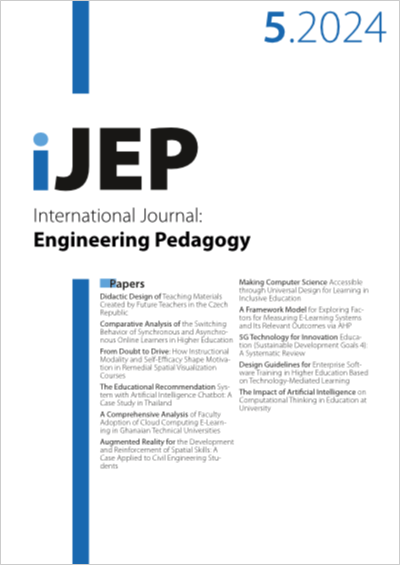A Framework Model for Exploring Factors for Measuring E-Learning Systems and Its Relevant Outcomes via AHP
DOI:
https://doi.org/10.3991/ijep.v14i5.47295Keywords:
E-learning system, online learning, factors influencing e-learning outcomes, learning outcomesAbstract
Universities have focused on learning outcomes as a metric for evaluating the quality assurance of educational systems. However, due to the absence of a clear guide on measuring outcomes and analysing them accordingly to improve the educational cycle, educators struggled to efficiently and effectively address shortcomings. By proposing a new framework, this study fills this gap and provides a guided approach to measuring learning outcomes in the context of university e-learning systems. Facilitated by a comprehensive research literature review of 102 articles, filtered from 271 articles using the PRISMA method, the opinions of five experts regarding e-learning systems and their outcomes were analysed using the analytical hierarchy process (AHP) to provide priority rankings. Teaching methods, teaching quality, learning environment, and students emerged as the main factors, along with their sub-factors. Moreover, our experts from diverse educational and geographical backgrounds provide added value, enabling the framework to be implemented across various environments and fields. Ultimately, this framework accurately measures sub-factors to identify the strengths and weaknesses of educational variables. The proposed framework is a step in the right direction, enabling the design of a suitable system that takes into account users’ needs when assessing e-learning outcomes.
Downloads
Published
How to Cite
Issue
Section
License
Copyright (c) 2024 Mohamed Benaida

This work is licensed under a Creative Commons Attribution 4.0 International License.



